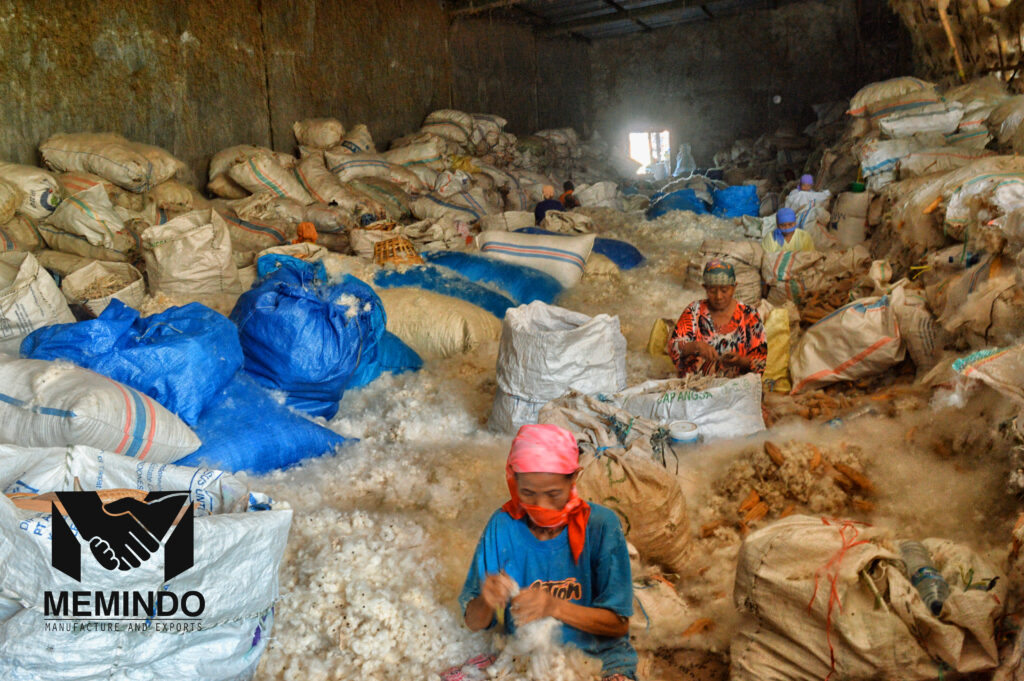Kapok, also known as Java cotton, is a plant with significant social value in many local communities in Indonesia and other tropical countries. Beyond its extensive use in the textile and furniture industries, kapok plays a major role in enhancing the social and economic fabric of rural communities.
1. Source of Income for Local Farmers
Kapok has long been a key agricultural commodity for small-scale farmers in many regions of Indonesia. The kapok tree thrives in tropical climates and requires minimal maintenance, making it an ideal crop for farmers with limited resources. Farmers can sell kapok fiber to be processed into various products like pillows, mattresses, and thermal insulation.
This income helps improve the well-being of farmers and their families, providing them with opportunities to access better education and healthcare services. In this way, kapok serves as a critical source of livelihood for rural communities.
2. Empowering Women in Communities
In many regions, the processing of kapok often involves women, especially in stages that require manual skills, such as cleaning and sorting the fibers. This participation creates employment opportunities that economically empower women in rural areas.
Women’s involvement in the kapok industry not only provides additional income but also strengthens their social role within their families and communities. This income often enables women to play a larger part in household decision-making, enhancing gender equality in rural societies.
3. Preservation of Local Traditions and Wisdom
Kapok also holds rich cultural value. In some communities, the use of kapok has been passed down through generations. Products made from kapok, such as mattresses, pillows, and traditional garments, are steeped in history and cultural significance. For instance, traditional kapok mattresses are often used in ceremonies or as gifts in important events like weddings.
Through the kapok industry, many local communities continue to preserve their cultural heritage while utilizing an eco-friendly natural resource. These traditions also strengthen social bonds within the community, fostering a sense of unity and solidarity.
4. Contribution to Environmental Conservation and Sustainability
Kapok trees contribute to environmental conservation. By planting kapok, rural communities can promote reforestation and prevent soil erosion. The kapok tree grows quickly, requires minimal chemical pesticides, and has a low environmental impact, making it a sustainable choice in modern agricultural practices.
Kapok-based products are also more environmentally friendly compared to synthetic alternatives. The lightweight, hypoallergenic kapok fiber is often used as a natural substitute for chemical foam in the production of pillows, mattresses, and cushions. As consumer awareness of eco-friendly products increases, kapok offers a natural solution that is in high demand globally.

Conclusion
Kapok not only holds economic value but also plays a significant social role in building communities, empowering women, preserving traditions, and supporting environmental sustainability. Its sustainable and eco-friendly use makes kapok not just an important commodity but also a symbol of how nature can holistically support human life.
In an increasingly sustainability-conscious world, kapok offers a solution that benefits not only financially but also positively impacts society and the environment.
Contact Us :
☎️ : +62 85933133244
📍 : Jl.Ir Soekarno, No.122, Dadaprejo, Junrejo, Kota Batu, East Java 65323

